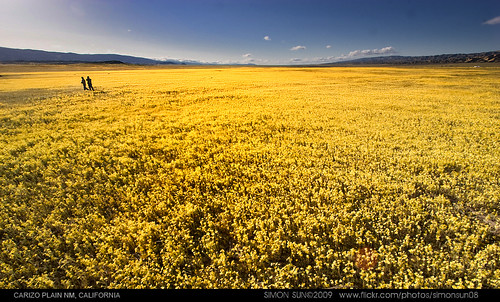Money makes the world go round and it’s also a big factor in helping you go around the world.
Twenty-something Americans probably aren’t in the best place to save up for vacations or round-the-world trips. They usually have entry level jobs, student loans and very little acquaintance with the practicalities of the real world.
But they also have some of the best visa options available.
Graduating university in 2009 I wasn’t sure what I wanted to do next, but I knew it involved travel. I looked into trips to India, volunteering abroad and even going back to school abroad. All things that are a lot of work to achieve and some of which cost quite a lot of money.
Then I found a compromise between the travelers dream and the graduates reality, a work-holiday visa for Australia.
This visa allows 18-30-year olds, from quite a few countries to live and work in Australia for a year, however they choose. One of the only limitations is that they can only work for the same company for six months.
I wouldn’t have known this visa existed if it weren’t for some serious soul-searching and even more serious searching on the internet. After college I found out it was possible to move abroad, earn money and not need a company or benefactor to support me.
Once in Australia, working and holidaying, I learned that Australia wasn’t the only country offering this opportunity. While a lot of the other countries under the world-holiday-scheme are closed to US citizens like me, there is enough opportunity abroad for young Americans to travel and work throughout their entire twenties.
If I had to do it again, I wouldn’t change a single decision made in my travels, but here’s how I would advise young Americans with an appetite for travel to get on the road and stay on the road as long as possible.
Contents
Study abroad (2-4 years)

As far as travel goes, the younger a person is, the more opportunity he or she has, mainly because of school. For twenty-something’s sake, I’ll focus only on university but quickly mention that even younger than university age, students can enter an exchange program, take part in school-sponsored trips, even win scholarships to travel abroad for academic purposes.
These days there really is no excuse for university students not to take advantage of international opportunities. Here’s the thing, university is expensive no matter where you attend. Why not spend that money not only learning about a subject, but also learning about the world?
A semester abroad may cost slightly more, but often times it’s pretty much the same as a semester in the States. Some student visas even allow people to work in that country, which takes away the huge concern of being able to earn money while abroad.
If students plan their four years at university strategically, they could spend a whole year, maybe even two, studying abroad. The great thing about studying abroad is that it’s pretty much open in all countries around the world.
Students could even go further than just studying abroad and actually attend a foreign university.
Work abroad for current students and recent graduates (3 months to 2 years)

Travel may be the last thing on a recent college graduate’s mind after Sallie Mae starts asking for money. But the year directly after college offers a few opportunities to live and work abroad that disappear after that year.
Ireland has two types of opportunities open to American students and recent graduates. First is the J1 program, which allows students to work a few months every summer of university in Ireland. Next is a 12-month work holiday visa to Ireland open to people enrolled in post secondary education and those who have graduated in the past 12 months.
Applicants must prove they have funds of €1,500 ($US1,900) and a return ticket or €3,000 ($US3,800) altogether to qualify.
BUNAC offers recent college graduates a similar opportunity in Canada. Their ‘Work Canada’ program is open to US citizens age 18-30 who graduated in the last year or are currently are full-time, degree-seeking students at an accredited college or university.
Through BUNAC eligible candidates are offered 12-month work authorization in Canada. The program costs $405, which can be a bit of money to save. Luckily, Canada is close enough to the States that people considering this opportunity won’t have to spend as much on airfare.
Other work abroad options offered to current or recent university graduates, include a six-month work holiday pass in Singapore as well as internships all over the world.
Internships are often unpaid or ill-paid. So why not use a money-less summer to see not only what it’s like to work in a specific work sector, but also to work in a different country.
Not to keep mentioning the company, but BUNAC offers an ‘Intern in Britain’ program as well. While BUNAC will help with visas, giving interns the ability to be paid during their internship, it is up to the internship-seeker to find an offer.
Internships abroad can be found just the same as in the States. Internship-seekers should contact companies in their particular field to learn about opportunities open to foreign students.
Working holiday Australia and New Zealand (1 to 2 years and three months)

Opportunities to work abroad aren’t just open to college grads. In fact, what I think are the easiest two opportunities for twenty-somethings to travel, mainly require people to be age 18-30.
As I mentioned at the start of this article, the sort of kick-off to me recognizing all opportunities abroad offered to US citizens was the working holiday visa for Australia. Well this visa is also offered in New Zealand.
The visas are pretty much the same, except US citizens have the option to extend their visa up to three months in New Zealand by doing three-months of farm work in the country. As of right now, an extension is not possible for US citizens in Australia. One other difference to mention is that the visa application fee for Australia costs $270, whereas New Zealand charges no fee to Americans.
I was shocked to see how easy these visas are to obtain. Basically, people must fill out an online application including personal details. As long as the person applying doesn’t have health concerns or a criminal record, he or she is usually admitted very quickly. I received my Australian work-holiday visa in a few hours and my New Zealand visa in a few days. People with health concerns or a criminal record could still be accepted, it just involves more paper work.
On a side note, BUNAC also offers an IEP Work Exchange Visa Program for New Zealand. This is open to people 18-35 years old, even if they have already had a work-holiday visa for the country. It costs $550 and allows people to work in the country for 12 months.
The next step (1 day to forever)

By timing your applications and the order of these visas correctly, the combination of them should bring people from age 20 to 27. That’s not including all of the traveling participants will be doing in between.
After exhausting all the visas easily available to you, it’s time to use lessons learnt on the road to stay on it even longer.
One option is teaching English abroad. People can earn enough money to maintain a living in countries like Thailand or Guatemala or they can actually lead a somewhat profitable career in places like South Korea or Japan.
Another option is sponsorship. It can be a difficult process, but places like New Zealand and Australia actually need more people in certain work sectors, especially skilled jobs like carpenters and nurses. Consider the work-holiday visa just a foot in the door to two countries that have a plethora of opportunities.
People interested in staying abroad even longer may consider going back to school abroad. This is very expensive, but it’s a plausible option.
Finally, those who want to stay abroad badly enough will just find a way outside the realm of visas and citizenship. I’ve met so many people on my travels who just found a country they loved and refused to leave. They work at bars, in tourism and as nannies, sometimes completely under the radar. I’m not condoning it, but I must mention it to prove that there is almost always a way to stay on the road.
Now that the money excuse is out of the way, why aren’t you traveling?
Bobbi Lee Hitchon has been traveling the world for over two years. She’s had working holiday visas in Australia and New Zealand. Read about her adventures abroad at Heels and Wheels. Get to know her on Twitter and Facebook.
